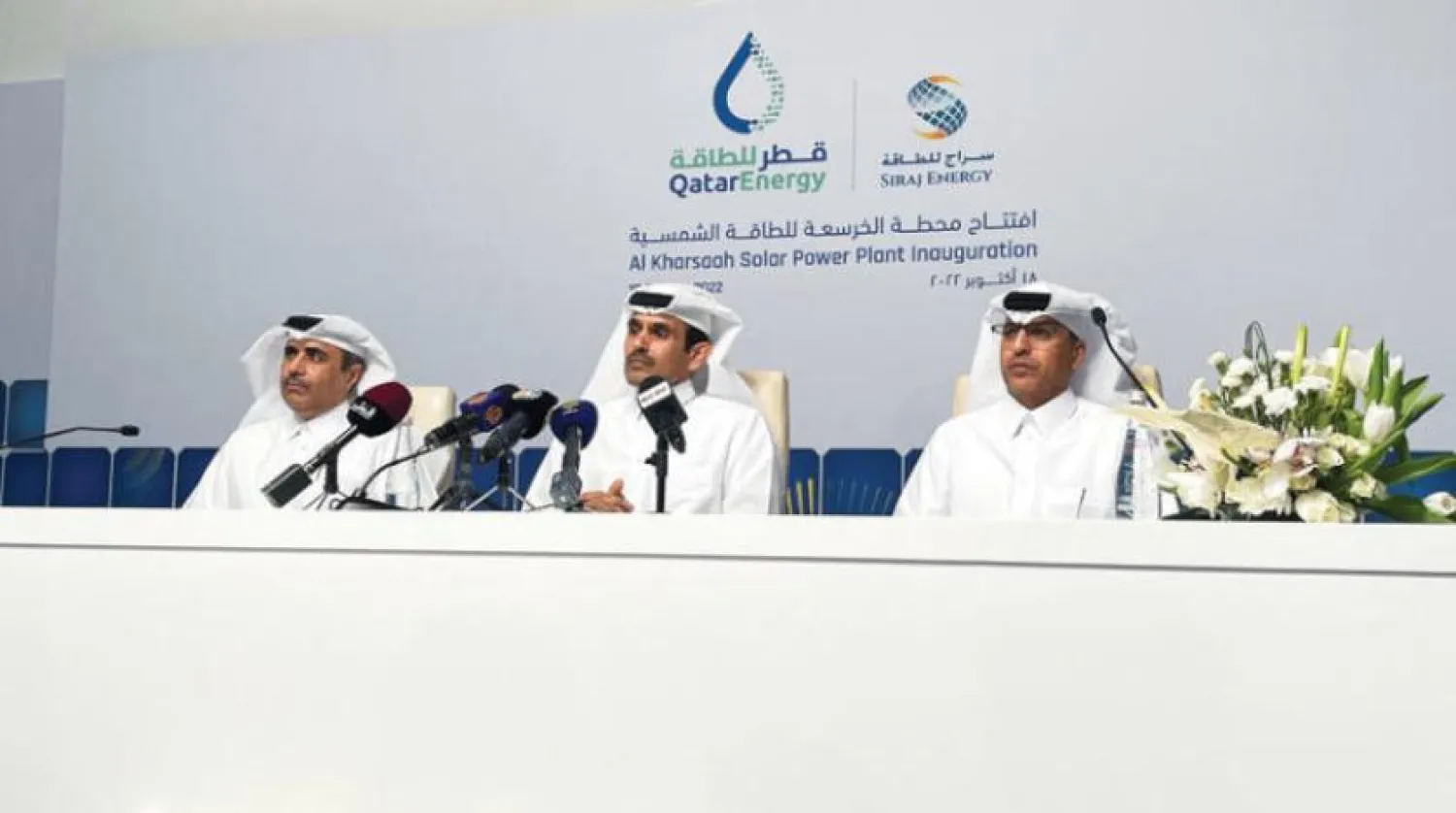QatarEnergy is working on expanding its gas production and trading operations as global demand surges and will not divert liquefied natural gas (LNG) contracted with Asian buyers to Europe this winter, announced CEO Saad al-Kaabi.
Qatar is already among the world's top LNG exporters, and several European states, facing a spike in energy prices and a fuel supply crunch, have been in talks with the Gulf Arab state to reduce their reliance on Russian energy supplies.
Kaabi, also State Minister for Energy, said that Qatar is committed to respecting its contracts, adding that "when we sign with an Asian buyer or European buyer, we stick to that agreement."
"So, the volume that will go to Europe is what has been assigned," he said, adding that as far as "taking from Asian buyers to take to Europe (that) will not happen."
Kaabi said that the state-owned QatarEnergy, which earlier this year signed deals for stakes in its LNG expansion project, aims to become the biggest LNG trader through organic growth, adding that it is already working on forming trading teams.
"We're just going to keep building that organically. So, we're not looking at acquiring a company or anything like that," he said.
Qatar is working to consolidate its position as a top supplier as Europe is racing to provide alternatives to Russian pipeline gas that comprises almost 40 percent of the continent's imports.
The supplies have declined since the Russian invasion of Ukraine in February and subsequent Western sanctions against Moscow.
The North Field expansion project, divided into two phases, includes six LNG trans that will ramp up its liquefaction capacity from 77 million tons per year to 126 million tons per year by 2027.
QatarEnergy signed agreements to sell stakes in the North Field East expansion phase with TotalEnergies, Shell, Exxon, ConocoPhillips, and Eni. It announced last month that TotalEnergies would be the first partner in the North Field South project.
"Total is a very important company for our partnership here," Kaabi said. "Internationally, we're in many places together, in exploration, and you'll see us soon going into more areas together."
Kaabi spoke after the inauguration of the al-Kharsaah solar power plant project, a joint venture between QatarEnergy, France's TotalEnergies, and Japan's Marubeni.
QatarEnergy had reserved land for future expansion of the 800 megawatt-peak plant, said Kaabi.









